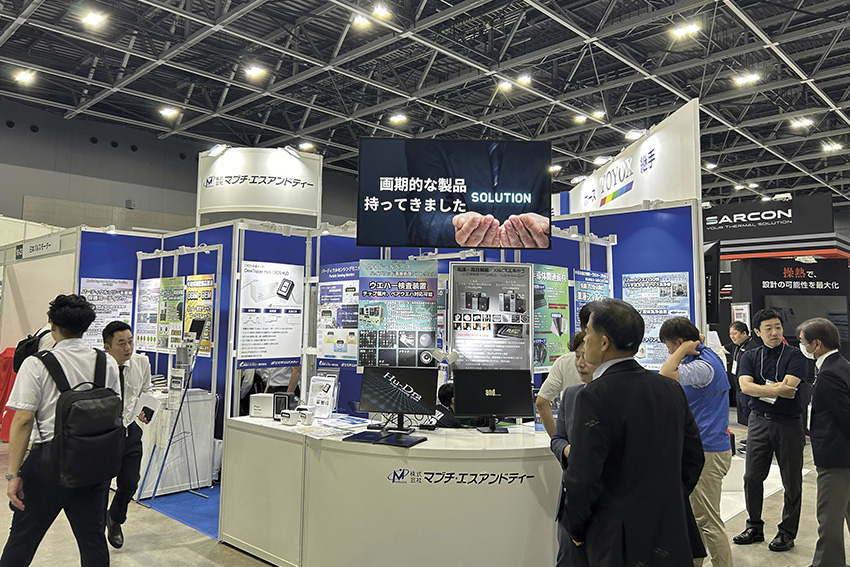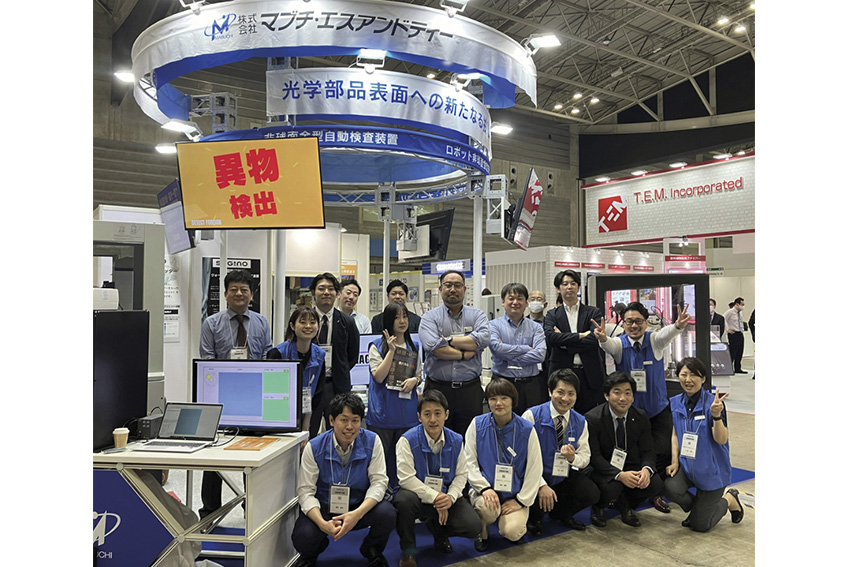Japanese trading company Mabuchi specializes in advanced optical technology, semiconductor solutions and sustainable innovations, connecting cutting-edge small and medium-sized enterprises with the global market.

The international market has undergone a radical paradigm shift and supply chains have had to scramble to adapt. Japanese trading company Mabuchi S&T has positioned itself as a vital link that connects small and medium-sized enterprises to the global market. Mabuchi has a long history in high-tech industries and specializes in the coordination, development and production of advanced machinery and equipment for optical lenses.
With 68 years of expertise in the field, Mabuchi provides high-precision molding machines and innovative technology for creating spherical and aspherical lenses, among other optical components. “We understand the optical needs and applications across industries, allowing us to propose the best equipment and provide a holistic solution,” explains company President Takashi Mabuchi.
Previously, the company manufactured its own branded lens polisher. It has leveraged that technical expertise and know-how to become the perfect partner to connect niche manufacturers in Japan with international high-tech manufacturers and customers both at home and abroad. Mabuchi’s collaborative work on a new type of aspheric lens mold polishing machine is a poignant example of the company’s ability to blend experience with emerging technological needs.
Major processes in the semiconductor sector are highly specialized and dominated by the big tech firms, so are impossible for a small or medium-sized enterprise to break into. However, Mabuchi has seized opportunities in niche areas the major companies have neglected.
This focus allowed Mabuchi to make significant progress during the COVID-19 pandemic. When Japanese engineers were unable to travel to China, Mabuchi’s Suzhou office stepped in, supporting Japanese semiconductor firms through on-ground service in Chinese fabs, significantly strengthening Mabuchi’s market presence in the country.
In the current economic climate, Japanese companies are an attractive option for international companies – especially those based in China, Taiwan and South Korea – due to the ongoing weakness of the yen and low interest rates. Furthermore, Japan was the dominant player in semi-conductor manufacturing in the past and the companies that persist have maintained that knowledge and experience in-house. “Traditionally, Japan had a strong technological know-how and a connection between the workers and the companies,” Mr. Mabuchi says.

While big players in Japan like Tokyo Electron and Sony dominate this space, Mr. Mabuchi emphasizes the important role that small and medium-sized enterprises play in the high-tech ecosystem. “These companies have developed as high-technology firms thanks to the Japanese culture and tradition, mainly this mindset of craftsmanship,” he says. Mr. Mabuchi further highlights how that craftsmanship and Japanese business culture foster unmatched quality of work through a close attention to detail and consideration of those within the industry.
These Japanese values are what position trading companies like Mabuchi to be the vital link between innovative high-high tech Japanese companies and lucrative international opportunities. “Trading companies like ourselves don’t manufacture, but we have a wide connection with other people, and we are considerate of the people involved in this industry,” Mr. Mabuchi says.
Trading companies, or shosha, like Mabuchi are unique to Japan and are vital in the Japanese business ecosystem. Where a business had struggled to bring its technology to market, Mabuchi bridges the gap between the technology and the application. “They have been pursuing this technology so much, but they sometimes cannot find the channels for application or sales,” Mr. Mabuchi says. “We gather excellent technology and find the best application for it to expand its usage.” Mabuchi leverages its technical know-how and vast network to introduce high-end domestic technology with international companies. “The advantage of a trading firm is that, whereas a manufacturer can only sell its products, we can provide multiple options and suggest the optimal combination based on the needs of the customers,” he says.
Environmental sustainability forms the company’s third business pillar. Mr. Mabuchi envisions an energy-efficient future where optics play a crucial role in reducing electrical dependence by transmitting massive amounts of information quickly with minimal energy. He adds: “With these benefits, society will probably shift to being optics-oriented, and as an optics expert, we want to leverage this opportunity.”
As the global manufacturing sector continues to evolve, Mabuchi is well positioned as the major conduit between the Japanese high-tech industry and the world. Even with its vast network and strong relationships in China, Taiwan and South Korea, it keeps one eye on the future. As the U.S. and Europe rebuild their domestic manufacturing capabilities, Mabuchi has its sights set westward to grow and secure its manufacturing network.
0 COMMENTS